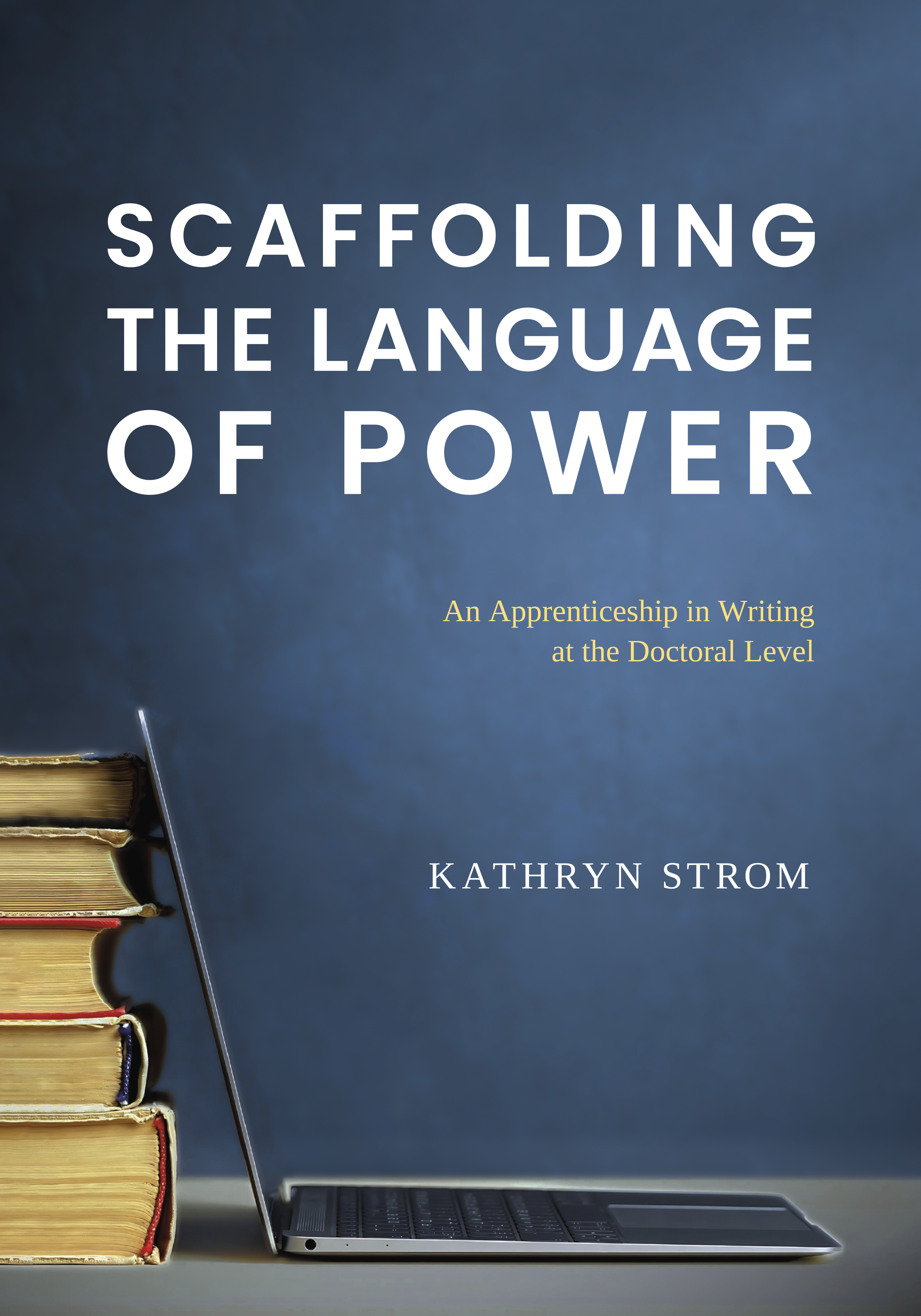emergent education
Scaffolding the Language of Power: An Apprenticeship in Writing at the Doctoral Level
This textbook-workbook hybrid is an assets-based, practical, interactive guide to developing the skills to successfully write a doctoral dissertation or thesis. It can be used both as a program/course text and as a supplement for individual doctoral students in education and related social science and humanities fields.
The book is built on three main ideas:
Writing as Social Justice: Writing at the doctoral level is part of the “language of power” in academia, which builds on the linguistic patterns of the dominant culture and serves as a gatekeeping mechanism.
Writing as a Genre: Doctoral level writing is also a particular way of using language, or a specific genre, with distinct rules and structures that can be taught.
Writing as Scaffolding: Approaching writing as a pedagogical act that supports readers’ understanding through purposeful scaffolding is not just a way to successfully complete a doctoral dissertation—it is a way to make academic writing more accessible in general.
With this foundation, in its first three chapters Scaffolding the Language of Power provides a general framework for the rules of the doctoral “language of power” along with lessons and exercises to develop organization, scaffolding, argumentation, evidence use, synthesis skills, and academic voice. The remaining six chapters address each major task of the dissertation, including the problem statement, literature review, theoretical framework, methodology, findings, and discussion. Each of these chapters explicitly teaches the purposes and elements of its specific dissertation task, guiding students through warm-ups, annotated examples with elaborated explanations of writing moves, and carefully sequenced activities. Ultimately, these pedagogical features support students to build out the pieces of their doctoral dissertations or theses, chapter by chapter.
Now available!
cped webinar: SCAFFOLDING THE LANGUAGE OF POWER
Watch the first webinar in a series of three sessions, hosted by the Carnegie Project on the Educational Doctorate (CPED)!

